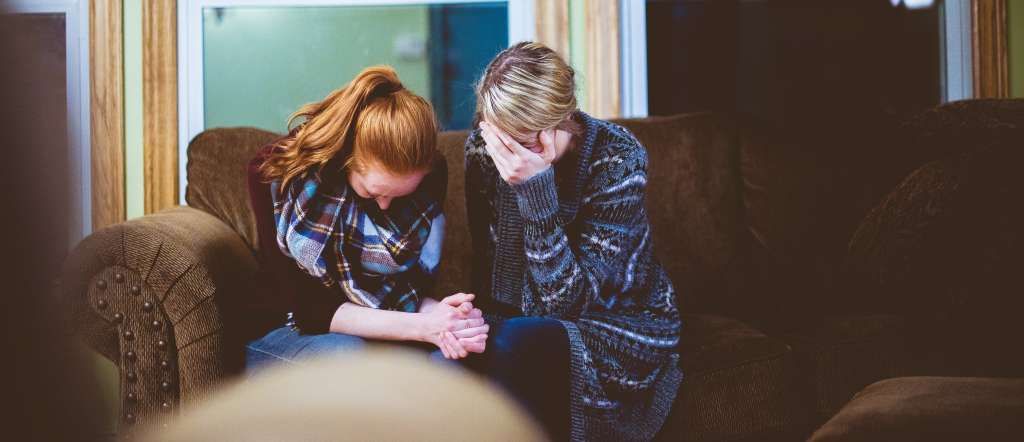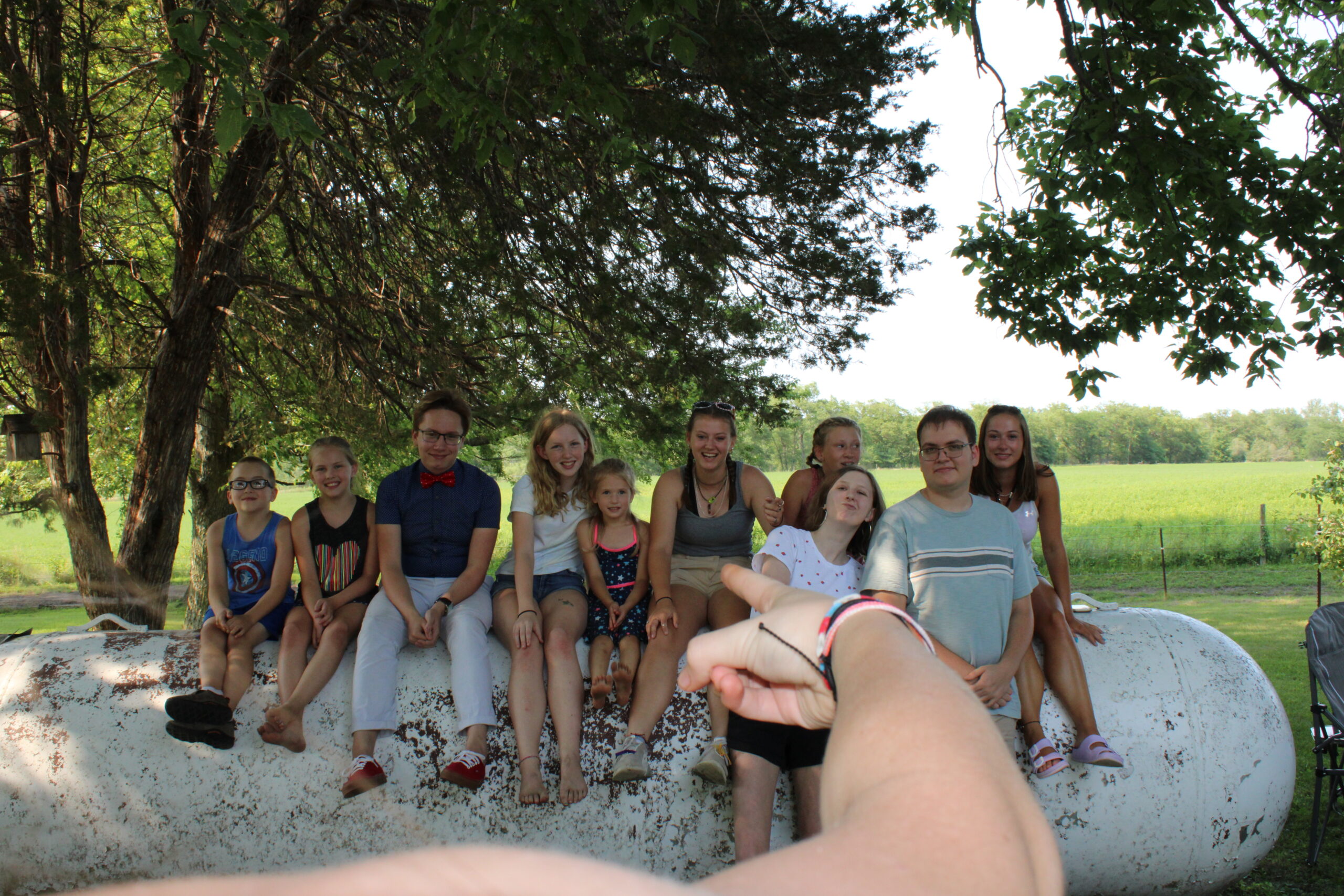fear | Deacon Allen Tatara Catholic Speaker - Part 2
On the Inside; On the Outside

5 Ways to Survive in Tragic Times
Posted by Deacon Allen | Emotions/Feelings, Everyday Life | No CommentsThe past couple of weeks have hit me pretty hard, and I imagine that I’m not alone.

A No-Doubt, Life-Changing Encounter
Posted by Deacon Allen | Discipleship, Emotions/Feelings, Everyday Life | One CommentHave you ever wondered what it was like to be in that upper room with the disciples after the death of Jesus? What it must have felt like as they huddled together in fear thinking that they could be next to die? All that despair, doubt and confusion that permeated their existence. It most certainly would make them want to cry out, “My Lord and my God.”
Read More

Paying It Forward, Wet Pants and All
Posted by Deacon Allen | Emotions/Feelings, Everyday Life, Hodgepodge | 4 CommentsThis story was shared with me by a priest a few years back and is a great reminder for all of us to ask ourselves if we are paying it forward, wet pants and all.

I’d like you to imagine this scene. You are in grade school standing with a group of your friends on the school playground. Two people emerge as captains and begin picking their teams. You stand there, waiting for your name to be called and to be chosen. What are some of the emotions that are running through your mind? Is it excitement in anticipation of your name being called? Is it anxiety and the stress of waiting? Is it doubt that maybe you don’t feel like you’re worthy of being chosen? Or is it fear, thinking to yourself, “Please don’t let me be picked last.” Finally, you’re picked. What were you feeling? Was it relief that you landed on a team? Were you hesitant because you weren’t sure of what was to come? Or were you filled with exuberance, ready to jump in and get started? I remember one time in grade school, there was a boy named Billy who had absolutely no athletic skill at all, and neither captain wanted him on their team. Eventually he was the last kid standing. When he was finally chosen, he didn’t reluctantly mosey over to his team because he was last. He was filled with such joy and excitement that he began yelling at the top of his lungs, “Woo hoo! Yeah! Alright! Let’s do this!” The rest of us kind of looked at each other in complete shock because we had never seen anyone so excited to be chosen. Read More

I love modern technology! Maybe this is because I have spent the bulk of my career surrounded by its bleeding edge innovations, but I am constantly in awe of the immense impact it’s had in our lives. However, it has been said that technology has exceeded our humanity. Well, I don’t know about that, but technology is super cool – especially if you know how to use it. Read More
There are many things in life that confuse me. For example, why does lemonade have imitation flavoring, but furniture polish contains real lemon juice? Why does “fat chance” and “slim chance” mean the same thing? If something “goes without saying,” why do people still say it? Why is it that if someone tells you that there are four billion stars in the universe you believe them; but if there’s a sign that says wet paint, you have to touch it to be sure? Some things just don’t make any sense. Read More

Though the fig tree does not blossom, and no fruit appears on the vine,
Though the yield of the olive fails and the terraces produce no nourishment,though the flocks disappear from the fold and there is no herd in the stalls; Yet I will rejoice in the Lord and exult in my saving God.
God, my Lord, is my strength; he makes my feet swift as those of deer and enables me to tread upon the heights.
These short verses from Habakkuk (3:17-19) is a small portion of one of my favorite scripture passages. For me, it’s always a reminder that even in the face of fear and uncertainty, there is always an opportunity to express faith and trust in God’s awesome majesty and power. However, during this particular Holy Week, this has been a bit more challenging.
All of us are battling the dominant forces and effects of this COVID-19 outbreak. So much so that we cannot help ourselves from being overcome with fear. We have fears after being introduced to new terms such as “global pandemic, social distancing and self-isolation.” We have fears of becoming prisoners in our own homes – quarantined from those we love and our communities of faith. We have fears of losing our livelihood, our ability to socialize, our freedom to do what we want, when we want, and where we want. We have fears of losing our jobs, returning to our jobs, providing for our families and getting back to some sense of normalcy. And we are fearful of this powerful disease that is taking more and more lives ever single day. We can’t help but ask the question: when will this all end?
I’ve been reflecting a lot this week on how the disciples were feeling after Jesus had died and how similar it is to our current situation. Think about it. Jesus had been unjustly convicted, crucified and buried. His friends feared for their lives. They feared that they would be the next ones to die. They feared the uncertainties ahead of them: what to do, where to go, and how to move on. They isolated themselves to avoid any contact with others out of fear of what could happen. They were fearful that life outside of their community of believers would never feel the same again. They had to be asking that same question: when will this all end?
But despite all of their fears, they still held onto their faith. They still believed in Jesus and trusted that his death was not the end – but just the beginning. They were finally starting to understand that they needed to first experience death in order to experience resurrection – to experience new life in Christ; a life that knows no end.
We too must fall back on our faith during this period between death and resurrection, between Good Friday and Easter Sunday. We must believe that whatever comes our way, whatever we encounter, whatever fears overtake us, whatever uncertainties confront us – we are never left alone. We trust that our God and Savior is always with us, especially during the difficult times in our lives. We believe that Jesus is suffering right along with us, holding our hand and guiding us through the darkness. It’s our faith that will bring us that much needed comfort and hope.
On this Holy Saturday, let us rejoice in the Lord and give praise to our saving God. May we, just like the disciples, find the strength to ride out these dark days and patiently wait for the stone to be cast aside – for new life is right around the corner.

For the past several weeks, I have been under an overwhelming amount of stress. Most of this was work-related: working long hours with short deadlines. Throw in several church-related activities and tasks on top of that, and I was running on non-stop overdrive.
In the midst of all of this, we had a family emergency at the hospital. Upon driving to the hospital one day, I noticed that I was having difficulty breathing and felt some odd pains in my chest that I had never felt before. I thought that I was having a heart attack. I immediately broke into prayer asking God to help calm me down. At that very moment, a song came on the radio – and I heard these lyrics:
Every anxious thought that steals my breath,
It’s a heavy weight upon my chest.
As I lie awake and wonder what the future will hold,
Help me to remember that You’re in control.
You’re my courage when I worry in the dead of night.
You’re my strength ’cause I’m not strong enough to win this fight.
You are greater than the battle raging in my mind;
I will trust You, Lord, I will fear no more.
As soon as these words touched my ears, I felt the power of God within me and I began to realize that I could not handle all of this weight on my own. I suddenly felt a calmness come over me and began to breathe normal again.
In our first reading, Queen Esther, filled with anguish, breaks into prayer and realizes that there is no one else who can provide her with the help she needs other than her Lord and Savior.
Every now and then, you and I need a little reminder that we need to turn to God for help. We cannot handle our stress alone but need to rely on the one who can help us carry our load.
During this Lenten season, let us get into the habit of turning to our Father in prayer. For everyone who asks, receives; and the one who seeks, finds; and to the one who knocks, the door will be opened. Lord, turn our mourning into gladness and our sorrows into wholeness. Praise be to God, now and forever. Amen.

Today is the feast of St. Vincent, Deacon and Martyr. Vincent was ordained a deacon by his friend and bishop St. Valerius. The Roman emperors had published their edicts against the clergy in 303, so Vincent and Valerius were imprisoned in Valencia, Spain. They seemed to thrive on suffering, for hunger and torture failed to break them.
Valerius was sent into exile, and the Roman governor now turned the full force of his fury on Vincent. Many types of torture were tried, but all failed.
Finally, the governor suggested a compromise. If Vincent would give up the sacred books to be burned according to the emperor’s edict, he would stop the torture. But Vincent would not give in, so the torture continued. Vincent remained courageous, and the torturer couldn’t take it anymore. So, Vincent was thrown into a prison cell and ended up converting the jailer. The governor wept with rage; but strangely enough, ordered the prisoner to finally be given some rest.
The faithful came to visit Vincent, but he was to have no earthly rest. For when they finally settled him on a comfortable bed, Vincent fell into his eternal rest.
Even in the midst of turmoil, God sticks with us and uses those challenges that we encounter to shape us and make us better disciples. As it says in the psalm, ‘In God I trust; I shall not fear. When we remind ourselves of this, we no longer see our setbacks as failures and our problems as obstacles; we see them as moments when God is working in us, strengthening us for our earthly journey. We will be rescued from our stumbling. All we have to do is trust in the Lord with all our hearts. For when we trust in the Lord, we have nothing to fear.





